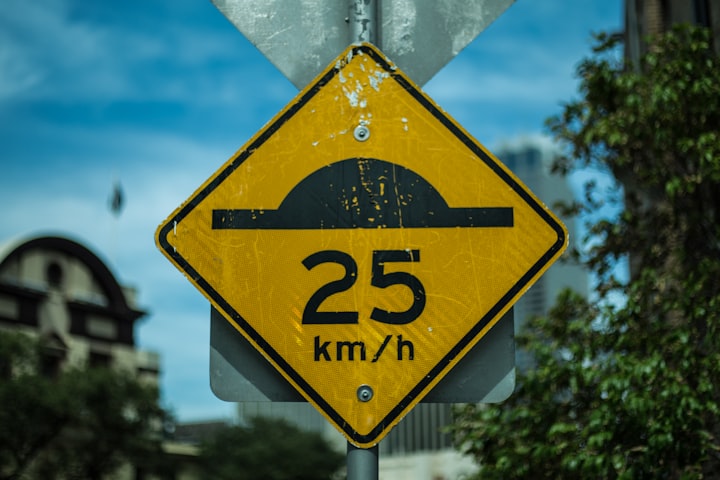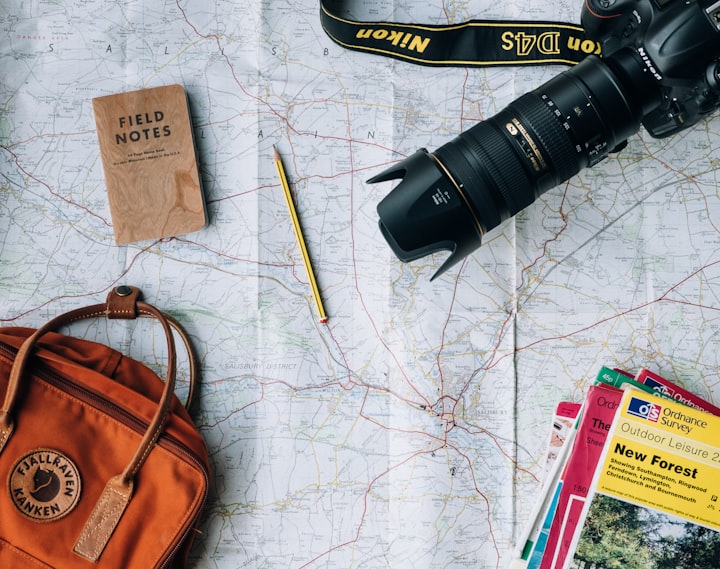Dear Chronic Illness, You Won't Stop Me Travelling
6 Tips on Travelling for Chronic Illness Sufferers.

Having battled with a chronic illness for the past 11 years, I have spent a lot of time reading travel magazines, finding myself wishing my body would afford me the same experiences as those I read about; summiting mountains, week-long hikes, kayaking fjords…

Unfortunately, I have CFS/M.E, so on most days, those activities are out of the question. On days where those tasks don’t seem quite as impossible, you can guarantee that I’ll pay for them the next day. Or three.
Living with Chronic Fatigue Syndrome is like taking your phone on a camping trip for a week, with no charger.
You can’t use your phone every hour of every day for the full week, otherwise, you’ll run it dead. Instead, you choose the most essential uses only and use it sparingly. A torch to find the toilet in the dead of night, posting that stunning photo of another sunset to Instagram (goes without saying) and saving a little in case of an emergency. But use it all at once and there’s simply no more left in the reserves.
My energy levels are similar. One day I am able to take a long walk around a lake or stroll through the forest to search for waterfalls. The next day, I can struggle to even get out of bed. I need to use my energy wisely.

Fed up of letting my condition limit my experiences, I discovered my own way to travel and have learnt a lot about the extra considerations people like me need to keep in mind when travelling.
But it’s not only chronic illness sufferers that can benefit from these considerations. Taking the time to plan your trip ahead of time can increase comfort for everyone. (Studies have even shown that planning a trip is just as good for you as the trip itself.)
It can also help with budgeting and maximising your time in each destination.
When it comes to travelling with a health condition, there are a million 'what ifs' that often make the thought of adventure scary. But it doesn't need to be that way. With a little additional thought and planning, you can minimise the risk of a chronic illness ruining your trip.
Here are 5 steps that I never skip, to help you plan your next adventure:
1. Consider Your Travel Style
I have been caught out on this one, more times than I care to admit before I finally learned my lesson. So you want to head to the wilderness and escape from it all? You want dark skies and the sound of the water to lull you off to sleep?
That sounds amazing! But after 4 rubbish nights of sleep, no hot shower to soothe your achy muscles and the migraine from hell, are you sure you’ll still love being in a tent?
I love being out in nature. But I also need regular, quality sleep to give my body the rest that it needs. I know from experience that a 5-day camping trip, exposed to the elements with no respite, is simply asking too much of my body. Be realistic in what you’re willing and able to stretch to.

Perhaps a campervan would be better suited for you, complete with a comfy bed and running water. Or maybe you’d prefer the pure indulgent luxury of a spa hotel and take day trips into nature instead.
Alternatively, mixing it up is a great way to experience all that a destination has to offer, whilst also managing health and cost factors. A camping trip with a night in a B&B in the middle/at the end is one of my favourite ways to adventure and as far as I’m concerned, is still very much a camping trip.
Remember, you don’t have to do things a certain way just because that’s how other people do them. Consider your options and find the middle ground between what your mind wants and what your body needs.
2. Choose Your Travel Companion Wisely
Sure, heading off on a spontaneous city break with a new friend might seem fun and glamorous, but do they really know about your illness?
I’m not saying they need to know every detail, but if you’re not up to climbing the 237 stairs to the next monument on your list, are they going to be cool with that, or are they going to be disappointed that they’re having to go it alone?

Having open, honest conversations around your condition before your trip ensures that everyone is on the same page and is aware of what others may struggle with. Being honest often encourages others to open up to you too about areas where they need more support. For example, maybe they suffer from anxiety and need a little extra reassurance sometimes — being open about your illness paves the way for others to open up too.
Being honest with each other means you can help and support one another along the way. Doing this from the start also stops you from over-committing during the planning stages. If a 6-day trip is too long for you, or the itinerary looks far too busy, then now is the time to voice that, not later.
Be clear with your limitations from the beginning to avoid any misunderstandings. Should the worst occur, you need to know you can count on your travel buddy.
3. Know Your Limits
This one’s a biggie. If you don’t know your limits, you’ll probably end up deciding that travel isn’t for you. Everyone has limits (not only people with a chronic illness) and we all need to acknowledge and accept those limits. (I’ll be the first to admit that it’s damn hard to do in practice!)
But once you get comfortable with those limits, everything becomes more fun.

Know your triggers. Know your recovery aids. Know how to listen to your body. If you don’t know what these are or don’t yet understand how to listen to your body, try keeping a diary and look for emerging patterns before your trip. Think about past holidays and what activities or patterns of activities lead to a crash. Figuring out these patterns will help you to learn your limits.
Once you are familiar with your limits, you need to be strict about adhering to them. When you know you’re not up to an activity, being able to say no is important. The next day always feels much better when you haven’t burned yourself out the day before.
4. Learn The Art of Sacrifice
Following on from number 3, this one is important. Sometimes we can feel a crash coming on, other times it hits without warning. If you’re feeling one looming, but think you may have enough immediate energy to carry on; consider the repercussions.
Sure, you could make the trip to the fabulous icecream bar you read about on Pinterest, but how are you going to feel tomorrow if you do? Some of my crashes can last days at a time if I push myself too hard. There’s nothing worse than missing out on something you were excited about, just to try and prove a point to yourself (and lose).
My advice? Skip the ice cream bar. Take the afternoon ‘off’, have a long soak, sleep as much as you need. Give your body the best possible chance to recover enough, to enable you to keep exploring the next day(s).

Sometimes sacrificing a single afternoon can save your whole trip — be strategic. Sacrificing through choice is always better than sacrificing through necessity.
5. Explore Your Transport Options
This one not only differs from person to person but also from destination to destination. Taking a road trip seems like a great idea. Throw your kit into the back and set off, stopping whenever you need to use the bathroom or buy painkillers from a store. No noisy passengers to keep you awake if you need a quick snooze.
But you also need to weigh up whether you’ll have the energy to both drive (whilst also navigating unfamiliar routes) and explore when you reach your destination.

On the flip side, public transport can be tiresome. Standing around in all weathers waiting for late buses can be exhausting at the best of times, let alone with a backpack and a chronic illness.
Although maybe knowing you can rest until your next stop, whilst someone else does the driving for you, is the saving grace in this scenario.
The reliability of public transport and the safety of the roads differ drastically depending on where you’re hoping to travel to. Do your research and give this one some thought before you dive in.
Final thoughts…
Having a chronic illness can make travel feel inaccessible to a lot of us but with an understanding companion, the ability to listen to your body and putting the time and effort into planning your trip, there is no reason why you too can’t enjoy your own epic adventure this summer, whatever that looks like for you.

About the Creator
Stephanie Arnold
Writer | Traveller | Hobby Photographer | ME.CFS







Comments
There are no comments for this story
Be the first to respond and start the conversation.